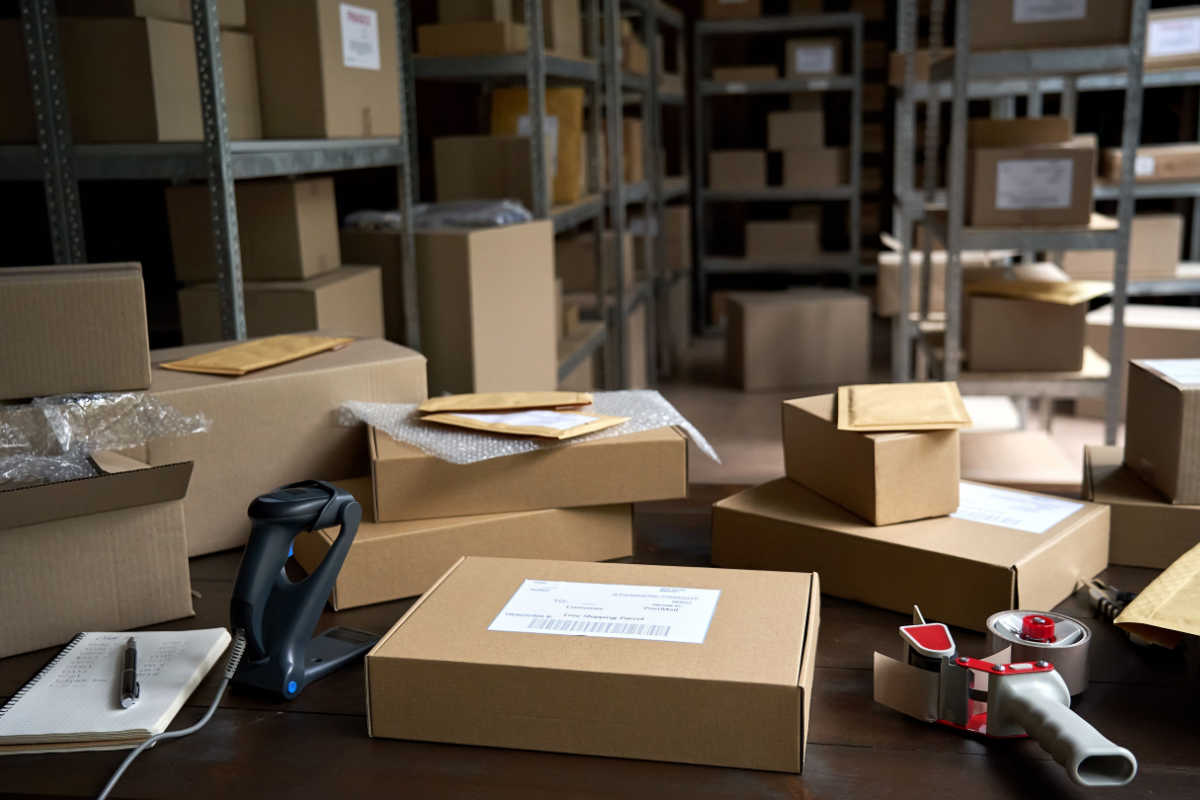Dropshipping is an age-old eCommerce business model that has gained a lot of popularity in the past five years. It’s the practice of selling products without having them in your possession. Instead, you purchase items wholesale and have them shipped directly to customers.
When dropshipping started, it was primarily used by smaller companies that didn’t have enough capital to invest in inventory or employees. Today, however, many larger firms utilize dropshipping as an inexpensive way to conduct business online with low overhead costs, ease of use, and a high potential for profit.
This has led to some speculation about whether dropshipping is legal. In reality, it is if you do it right. In this blog, we’ll look at how dropshipping works, how to do it legally, and cases when it can get a little shady.
What Is Dropshipping?
Dropshipping is an order fulfillment method where the seller doesn’t keep inventory on hand. Instead, the customer’s order is passed on to a third-party manufacturer who ships it directly to the consumer.

The seller doesn’t have the product on hand and only handles the payment and production coordination with the manufacturer. Third-party producers are usually wholesalers that sell goods at low prices. They take care of preparing the package and delivering it to the customer through their own distribution channels.
How Does Dropshipping Work?
One of the main reasons the dropshipping business model has become so popular is because of the relatively low effort it requires to set up. These are the three main steps you should take to establish a dropshipping eCommerce business:
- Step 1: Start by identifying a niche for your business or the type of products you want to sell. For example, you may want to start an online store for dog accessories.
- Step 2: Pick a name, build a website through Shopify or a WooCommerce platform, and buy a domain.
- Step 3: Once your website is set up, you can search for dog accessories from different manufacturers and add them to your store’s catalog.
When a customer places an order on your website, your store automatically sends the order information to the third-party supplier if you’ve built your website through WooCommerce or Shopify. The supplier will prepare the order and send it directly to the customer’s address. As the store owner, you won’t need to worry about warehouse logistics, inventory, or shipping costs, as the wholesaler handles everything related to delivery after the purchase.
Pay Your Taxes
First, running an eCommerce company without a business license may be illegal in some states. So make sure to check if you need to obtain a business license depending on your state’s regulations.
Regardless of whether you need a business license, a dropshipping business is liable to taxation. However, the tax purposes might be complicated, as you’ll probably be running the business from the U.S., purchasing the products abroad, and shipping them worldwide. So, you might wonder which jurisdiction you should pay your taxes to.
There are usually two types of taxes you will be required to pay: income tax and sales tax. If you live and operate in the U.S., you should pay the income tax to the U.S. federal government and your local state government, even though your customers may be international. The sales tax is paid to your local state authorities, as each state has its own tax rates.
Illegal Drop Shipping Practices
As stated above, dropshipping is legal as long as you follow state and federal regulations and pay your taxes. However, there are some practices that you should avoid as they are against the law. Some of these practices include:
Trademark Infringement
Trademarks are signs or symbols that protect a given company’s rights to produce and distribute its own products. Some wholesalers may offer merchandise with sports team logos or other company symbols. These wholesalers are likely not authorized to sell these items. So, avoid branded items such as Pokemon toys or Disney merchandise.
Counterfeit Products
Counterfeit products are made to look exactly like original products with very similar trademarks. Recent controversy emerged around wholesalers selling fake Apple AirPods. A knock-off of any brand without its permission is illegal. Dropshipping counterfeit products can result in a lawsuit against you if a given brand decides to take legal action against counterfeiting.
Restricted and Prohibited Products
Finally, some product categories are illegal to sell without a proper license. You will have to obtain a special license to sell liquor, medicine, and some food items. In contrast, prohibited items include weapons, drugs, poisonous liquids, and anything legally forbidden in your origin country.
What Products Are Legal to Dropship?
Technically, any products beyond the above-mentioned categories are legal to dropship. If you want to start a small eCommerce store but don’t know what kind of products to dropship, here are some ideas for inspiration:
- Sunglasses
- Socks
- Yoga gear
- Novelty t-shirts
- Pet accessories
- Inexpensive jewelry and watches
- Motivational bookmarks
- Coffee mugs
- Phone cases and accessories
Even though it’s completely legal, try to avoid dropshipping large, heavy, and fragile items like gym equipment or glasses. These products usually require special care and attention during shipment, and if they get damaged in transit, dealing with returns and reshipment can be cumbersome and time-consuming.
Possible Ethical Violations and the Gray Area
In reality, most of the speculation regarding the legality of dropshipping stems from the debate over its ethical violations. The dropshipping business model can be seen as a gray area if you don’t abide by state and federal business regulations.

However, if you accept and practice three essential components: legitimacy, transparency, and disclaimers, there’s nothing you should worry about. Let’s discuss these concepts in further detail.
Legitimacy
Obtaining a license and paying your taxes properly will establish your company as legitimate. If you want to maintain solid and long-lasting relationships with your suppliers, you must have all the necessary documentation supporting your entity.
Transparency
A serious ethical violation in dropshipping can be using misleading and deceptive descriptions and photos of your products. When a product doesn’t match its description, the customers may leave bad reviews or claim the transaction as fraud, eventually harming your reputation.
Disclaimers
Disclaimers are statements about specific business operations, conduct, or practices. These disclaimers should be made available to the customers as they include information about the limits of warranties or health and safety concerns. For example, you may include a Disclaimer of Warranties and Limitations on Liabilities that states that you do not offer a warranty in case a product is damaged while in use by the consumer.
Is Dropshipping Ethical?
The debate about whether dropshipping is ethical or not is a double-edged sword. On the one hand, dropshippers sell the same products that customers can find directly on the wholesaler’s websites. However, dropshippers usually increase the price of these products. This margin on the initial price helps dropshippers earn a profit but makes products more expensive.
On the other hand, the dropshipper spends time and resources researching trends, building a website, and creating marketing campaigns for customers. Moreover, most dropshippers also provide better customer service and easier shipping and return policies. As a result, some could argue that dropshippers make certain products more accessible.
Of course, not all dropshippers follow the unwritten rules of running an ethical online business. For instance, some online sellers may charge higher prices or lie about the shipping time. But once again, if you offer justified prices for your value-added services and provide transparency, you won’t be crossing any moral boundaries.
Hard Truths About Dropshipping
The dropshipping business model allows you to save money on storage space and inventory. However, if you’re planning to embark on this journey, there are some things you need to consider before getting started.
Low-Profit Margins
Even though setting up and running a dropshipping business is cheap, returns in the dropshipping industry usually tend to be low.

The average profit margin in dropshipping is 15% to 20% but may vary based on the niche. If your profit margin is between the average after-marketing expenses, you may be profitable. However, the problem is that it may be tough to get to that point.
High Competition
Following on from the previous point, one of the main reasons why it’s challenging to make a lot of money through dropshipping is that it’s highly competitive. Initially, it may be difficult to establish a loyal customer base. You also won’t have a chance to build exclusive deals with suppliers. Additionally, there’s a chance that other competitors may be selling the exact same products through dropshipping, so you may want to research to identify a spare niche and develop a competitive pricing strategy.
No Control Over the Supply Chain
In standard eCommerce business models, if customers want to return products, organizing the process is much easier for the business. However, since dropshippers don’t have control over the supply chain, things may get complicated if a product is late to a customer or if you need to organize a return. You have to communicate back and forth with the customer and the wholesaler simultaneously, which may take much more time and energy.
The Right Approaches to Dropshipping
Despite the hardships, dropshipping can still be a profitable endeavor if you put effort into it. Below are tips on how to approach dropshipping to make the most out of it.
Performing Market Research
Because of low operating and maintenance costs, the dropshipping business model allows you to constantly experiment and test new marketing tactics, advertising methods, and products. For example, if your niche market is dog accessories, you can sometimes throw in cat accessories and see how they perform. And if you receive a positive response from customers, you can establish another online store for that niche too.
Avoiding Overstocking
Occasional market volatility can hurt businesses with a lot of inventory piled up in their warehouses. Running an online dropshipping business can safeguard you from extreme circumstances and avoid overstocking problems when sales are down.
Using Strategic Shipping Systems
The farther you deliver from your warehouse facilities, the more it will cost you in shipping. Therefore, dropshipping can be a great solution for shipping to international consumers.
Is Dropshipping Worth it?
The dropshipping business model is growing in quantity year by year, but many digital marketers may ask: is dropshipping profitable? Summing up the pros and cons of dropshipping, we can confirm that, even though it needs a somewhat different approach than traditional eCommerce business models, dropshipping is legal and offers a tremendous opportunity for creating a profitable business.
In the simplest way, we can put it, go for it if you have found a good niche market to cater to and have checked the rules and regulations applicable to those products. The global dropshipping the market is growing at an exponential rate and makes up a big chunk of all products sold online. The industry is projected to rise by 28.8% between 2020 and 2025 and reach $557.9 million.
Final Thoughts on the Legality of Dropshipping
Dropshipping is one of the hottest business ideas and trends for new entrepreneurs looking to get started with an online business. There are many ways to make money from it, and you can cut down on costs in various areas. But like any hot topic, it comes with plenty of controversies attached, including whether dropshipping is legal or not.
However, after reading the article, you should have a much better idea of what dropshipping is, how it works, and whether you can use it as part of your business strategy. We will leave you with the conclusion that dropshipping is legal, but you should be careful of possible ethical violations and avoid gray areas.


